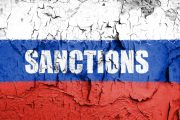According to NATO’s website, the Chicago conference is expected to “deliver on decisions that were taken at the Lisbon Summit in November 2010, driving forward key Alliance policies and reaffirming the transatlantic link.”
Among the many significant achievements announced by the heads of state and government in the 2010 Lisbon Declaration referenced above is their claim that “we have … invited Russia to deepen its cooperation with us on the areas where we have common interests.”
A dramatic move toward closer ties between NATO and Russia has played out over the past several years while, on the surface, at least, relations between Brussels and Moscow have appeared to deteriorate. President-elect Vladimir Putin, who has been noted for bashing the United States and NATO, stepped up the harsh rhetoric during his recent presidential campaign, no doubt gaging much of his forensic attack to appeal to Russian nationalism. How much of this was theatrics for domestic and international consumption is open to debate. However, in his role as prime minister, Putin approved of NATO’s use of Russian territory for air supply convoys for the Afghanistan War.
In fact, Putin has referred to NATO approvingly as “a stabilizer in global affairs” and is reportedly considering a NATO proposal for a semi-permanent base in Russia for Afghan operations. According to an April 11 Reuters story:
Moscow is studying a request from NATO for use of facilities at an airport in the Volga River city of Ulyanovsk as a transit point for shipments of non-lethal supplies to and from Afghanistan by air, rail and road.
Russia has allowed Afghan-bound NATO transport through its territory since 2009 as an alternative to convoys through Pakistan, which have been subject to militant attacks, but no permanent facility was involved….
In remarks that suggested Russia does not intend to decrease cooperation in Afghanistan, Putin said “in some cases NATO is playing the role of a stabiliser in global affairs” and included the Afghan mission among such cases.
While policy elites at the Council on Foreign Relations (CFR), the Center for Strategic and International Studies (CSIS), and other globalist think tanks praise these developments as great breakthroughs for international cooperation, sober realists see the same developments as confirmation of the dangerous scheme for NATO-Russian convergence.
As The New American has reported (see here and here), Secretary of State Hillary Clinton and NATO Secretary General Anders Fogh Rasmussen are but two of the many high-level leaders of the Western alliance who have been calling for deeper integration and more extensive convergence between Russia, the United States, and Europe.
Photo: NATO flag
Related articles:
New NATO Chief Outlines Priorities
U.S. Defense Department Announces Step Toward the North American Union
Decades of Suicidal Policies Vis-à-vis Russia and China
Concert of Democracies: Same Old Globalism
Clinton Wants Closer NATO-Russia Ties
UN Report: NATO’s Libya War Armed al-Qaeda
Al-Qaeda and NATO’s Islamic Extremists Taking Over Libya
UN, Obama Fighting Alongside Al-Qaeda in Libya
Making the World Safe for Narco-Terrorism
The Karzai Family Fortune, Courtesy of U.S. Taxpayers
Corruption Rampant in Afghanistan
Karzai Offers Invitation to “Our Taliban Brothers”
Karzai: Afghan Regime Would Back Pakistan Against U.S. in War
Troops “Not Leaving” Afghanistan in 2014, U.S. Officials Say
Kissinger Sings Convergence Theme With China’s “Red Song” Choir




